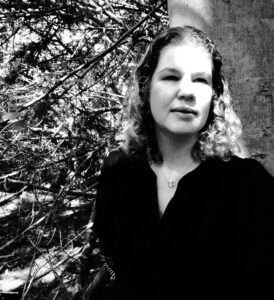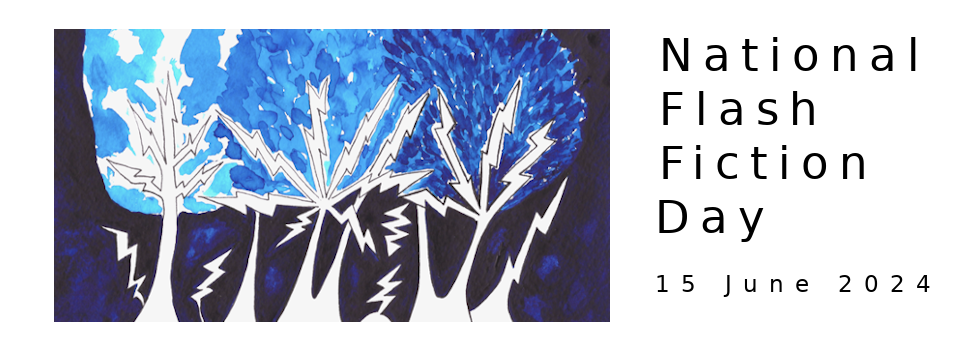Welcome to the fifth in a series of interviews with this year's National Flash Fiction Day anthology editors and micro fiction competition judges! This week, Diane Simmons chats with one of this year's micro fiction competition judges, Judy Darley, about her forthcoming collection and what she's looking for when judging our micro competition...
Diane: Your collection, Remember Me to the Bees, was published by Tangent books in 2014 and your second collection, Sky Light Rain, is out soon. Can you tell us a little about them both?
Judy: Remember Me to the Bees was actually published by micropress Scopophilia, though Tangent Books kindly host it on their site. It brings together 20 of my short stories exploring the way people attempt to survive and thrive, and the mistakes we can make in the process. A reviewer described it as a book of lost and broken people and things, which seems to fit.
Sky Light Rain will be published by Valley Press, and will contain my short stories, flash fictions and poetry. Flash fiction is increasingly the medium I turn to in exploring my fascination with the fallibilities and strengths of the human mind.
Diane: For the last couple of years, you have run a flash walk in Bristol to celebrate NFFD. Could you tell me a bit about the walk and how it came into being?
Judy: I love experiencing fiction in different ways. A few years ago I took part in a St Ann’s Day pilgrimage across part of Bristol in which actors performed site-specific stories. One of mine was included and there was something magical about being part of a horde of people all brought together with the same intent, listening to words unfurl in unlikely places. At last year’s Flash Walk, we got a trio of fantastic actors on board to share 12 amazing stories. My favourite bit is meeting people who have never ventured out on anything like a flash walk before, and seeing the intrigue on the faces of people passing by. The enjoyment of fiction can be contagious!
Diane: I have heard you perform your flashes several times and always read so well. Do you enjoy reading to an audience?
Judy: Thanks so much! I love reading to an audience, but I have to make sure I practice a lot beforehand. There’s always a chance nerves will wriggle in and make my mind go blank. If I know the story well enough, that’s not a problem: the words just bubble up and I keep going with, hopefully, the audience none the wiser.
Diane: You are one of the judges for this year’s NFFD micro competition. Is there anything you are particularly looking for in a micro flash? Is there anything that you think makes a micro stand out?
Judy: A micro flash can be such a powerful thing. I’m hoping to discover pieces that move me with emotions that bubble just beneath the surface. A skilful flash writer can condense the resonance of a novel into 100-words. I want to read pieces that leave ripples.
Diane: Do you have a favourite flash? Either one you’ve written, or one by another writer?
Judy: There are so many breathtaking flash fiction writers emerging that I seem to discover new favourites most days. Frances Gapper has some wonderful flashes in her collection In The Wild Wood, and 'Gingerbread' by Joanna Campbell, which appeared in Ripening: National Flash Fiction Day Anthology 2018, is a rare, unsettling treat. The true test for me is whether I remember them long after reading. Grace Palmer’s ‘In 1960’, published by FlashBack Fiction has haunted me for months.
 Judy Darley is a British fiction writer, poet and journalist who can't stop writing about the fallibilities and strengths of the human mind. Her flash fiction and stories have been published by magazines and anthologies in the UK, New Zealand, US and Canada, including Seren Books, Mslexia, Unthology 8 and SmokeLong Quarterly, as well as in her debut collection Remember Me To The Bees. Sky Light Rain, her second collection, will be published by Valley Press in autumn 2019. She has shared her stories on BBC radio, as well as in cafés, caves, an artist’s studio and a disused church. Find Judy at http://www.SkyLightRain.com, and https://twitter.com/JudyDarley.
Judy Darley is a British fiction writer, poet and journalist who can't stop writing about the fallibilities and strengths of the human mind. Her flash fiction and stories have been published by magazines and anthologies in the UK, New Zealand, US and Canada, including Seren Books, Mslexia, Unthology 8 and SmokeLong Quarterly, as well as in her debut collection Remember Me To The Bees. Sky Light Rain, her second collection, will be published by Valley Press in autumn 2019. She has shared her stories on BBC radio, as well as in cafés, caves, an artist’s studio and a disused church. Find Judy at http://www.SkyLightRain.com, and https://twitter.com/JudyDarley.
SUBMISSIONS ARE NOW OPEN for this year's National Flash Fiction Day Anthology and Micro Fiction Competition. Submissions close on 15th March 2019. For more information, please visit our Anthology and Competition pages.
We are also trying to secure funding to offer free entries to disadvantaged and marginalised writers. If you would like to help us do this by donating entries, please contact us at nationalflashfictionday@gmail.com.

 Diane Simmons is a writer, editor, a co-director of National Flash Fiction Day, and part of the organising team for Flash Fiction Festivals UK. She has been an editor for FlashFlood, a flash fiction judge and for three years was a reader for the Bath Short Story Competition. Her fiction has featured in a variety of anthologies and publications including Mslexia; New Flash Fiction Review; To Carry Her Home, BFFA Vol One;The Lobsters Run Free, BFFA Vol 2; Flash Fiction Festival, Vols One and Two; Flash I Love You (Paper Swans); FlashBack Fiction; Micro Madness; and six National flash Fiction Day UK anthologies. In 2009 she won second place in ITV's This Morning National Short Story Competition and since then has been placed in many flash fiction and short story contests, including the HISSAC flash prize; the NFFD micro competition; Writers' Forum Short Story Competition; Worcester Literature Festival Flash Competition; 99 Fiction; NAWG; and The Frome International Short Story Competition. Her stories have also been shortlisted for numerous competitions, including the Bath Flash Fiction Award; Exeter Flash; and Flash 500. Her debut collection of flash, ‘Finding a Way’ is being published by Ad Hoc Fiction in February 2019. She tweets
Diane Simmons is a writer, editor, a co-director of National Flash Fiction Day, and part of the organising team for Flash Fiction Festivals UK. She has been an editor for FlashFlood, a flash fiction judge and for three years was a reader for the Bath Short Story Competition. Her fiction has featured in a variety of anthologies and publications including Mslexia; New Flash Fiction Review; To Carry Her Home, BFFA Vol One;The Lobsters Run Free, BFFA Vol 2; Flash Fiction Festival, Vols One and Two; Flash I Love You (Paper Swans); FlashBack Fiction; Micro Madness; and six National flash Fiction Day UK anthologies. In 2009 she won second place in ITV's This Morning National Short Story Competition and since then has been placed in many flash fiction and short story contests, including the HISSAC flash prize; the NFFD micro competition; Writers' Forum Short Story Competition; Worcester Literature Festival Flash Competition; 99 Fiction; NAWG; and The Frome International Short Story Competition. Her stories have also been shortlisted for numerous competitions, including the Bath Flash Fiction Award; Exeter Flash; and Flash 500. Her debut collection of flash, ‘Finding a Way’ is being published by Ad Hoc Fiction in February 2019. She tweets 
 Angela Readman is the winner of the first National Flash Fiction Day competition. Her short stories have since been winners of The Costa Short Story Award, The Mslexia Story Prize and The Anton Chekhov Award for Short Fiction. Her story collection Don't Try This at Home was short listed in The Edge Hill and won The Rubery Book Award. In January 2019 her debut novel Something like Breathing was published by And Other Stories. She also writes poetry and is published by Nine Arches.
Angela Readman is the winner of the first National Flash Fiction Day competition. Her short stories have since been winners of The Costa Short Story Award, The Mslexia Story Prize and The Anton Chekhov Award for Short Fiction. Her story collection Don't Try This at Home was short listed in The Edge Hill and won The Rubery Book Award. In January 2019 her debut novel Something like Breathing was published by And Other Stories. She also writes poetry and is published by Nine Arches.